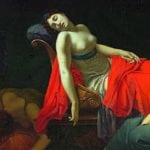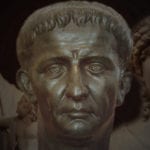 Books
Books  Books
Books  Humans
Humans 10 of the World’s Toughest Puzzles Solved in Record Time
 Mysteries
Mysteries 10 Scientific Mysteries We Don’t Fully Understand
 Weird Stuff
Weird Stuff 10 Celebrities Who Have Admitted to Alien Encounters
 Our World
Our World 10 Surprising Secrets of Notre Dame Cathedral
 Miscellaneous
Miscellaneous 10 Intriguing Origins of Popular Carnival Rides
 Weird Stuff
Weird Stuff Ten Unexpected Discoveries Involving Vomit
 Movies and TV
Movies and TV 10 Actors Who Almost Didn’t Take Career-Defining Roles
 Technology
Technology 10 Little-Known Shifts in Computer Science
 Religion
Religion 10 Catholic Histories That Reveal Acceptance of Abortion and Contraception
 Books
Books 10 Famous Writers Who Were Hypocritical
 Humans
Humans 10 of the World’s Toughest Puzzles Solved in Record Time
 Mysteries
Mysteries 10 Scientific Mysteries We Don’t Fully Understand
Who's Behind Listverse?

Jamie Frater
Head Editor
Jamie founded Listverse due to an insatiable desire to share fascinating, obscure, and bizarre facts. He has been a guest speaker on numerous national radio and television stations and is a five time published author.
More About Us Weird Stuff
Weird Stuff 10 Celebrities Who Have Admitted to Alien Encounters
 Our World
Our World 10 Surprising Secrets of Notre Dame Cathedral
 Miscellaneous
Miscellaneous 10 Intriguing Origins of Popular Carnival Rides
 Weird Stuff
Weird Stuff Ten Unexpected Discoveries Involving Vomit
 Movies and TV
Movies and TV 10 Actors Who Almost Didn’t Take Career-Defining Roles
 Technology
Technology 10 Little-Known Shifts in Computer Science
 Religion
Religion 10 Catholic Histories That Reveal Acceptance of Abortion and Contraception
10 Ancient Prophecies That Helped Shape The World
Today, the idea that prophecies can reveal the future is the stuff of tabloids. In the ancient world, though, the prophetic visions and advice of the oracles were thought to be guidance from the gods. While many of the people who sought the advice of ancient priestesses were undoubtedly looking for help with everyday life, there are some prophecies that shaped the entire world.
10 Julian The Apostate And The Rise Of Christianity
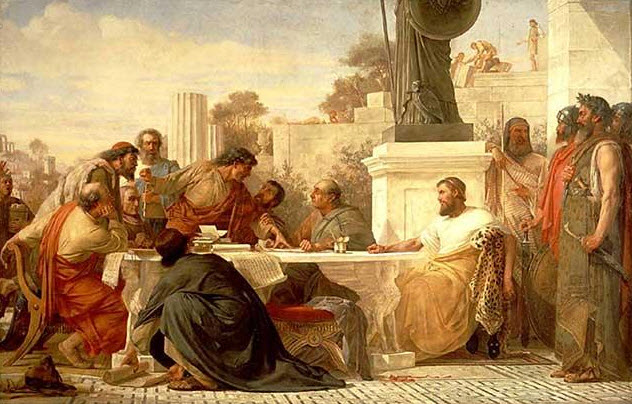
Julian the Apostate was a Roman emperor who rose to power in 361. Even though Christianity was gaining considerable momentum, Julian not only renounced the Christian faith but waged a sort of nonviolent war against it.
He wrote volumes on Hellenistic culture and religion, considered himself the head of paganism, performed animal sacrifices, and appointed his officials based on their pagan beliefs. He even funded the rebuilding of Jewish temples in Jerusalem—not because he particularly liked the Jews but because he hated the Christians.
He also tried to usher in a period of rebirth for the Oracle at Delphi, not only declaring them free from taxation but also sending them regular tributes and issuing orders that the ailing area was under his protection. He also sent one of his doctors, a man named Oribasius, to supervise their finances and consult with Delphi’s Pythian priestess.
In spite of all Julian’s efforts, the prophecy would be the last one the oracle ever gave. It foresaw her own downfall and the end of not just the oracle but the influence of the old gods.
A version of the prophecy reads: “Tell the king the fair wrought hall is fallen to the ground. No longer has Phoebus (Apollo) a hut, nor a prophetic laurel, nor a spring that speaks. The water of speech even is quenched.”
Julian died after ruling for only 20 months. He was killed while fleeing a battlefield in what is now the area near Baghdad. No one knows who threw the spear that killed him, and his attempts at reinstating the old gods had no lasting impact.
9 Solon’s Democracy
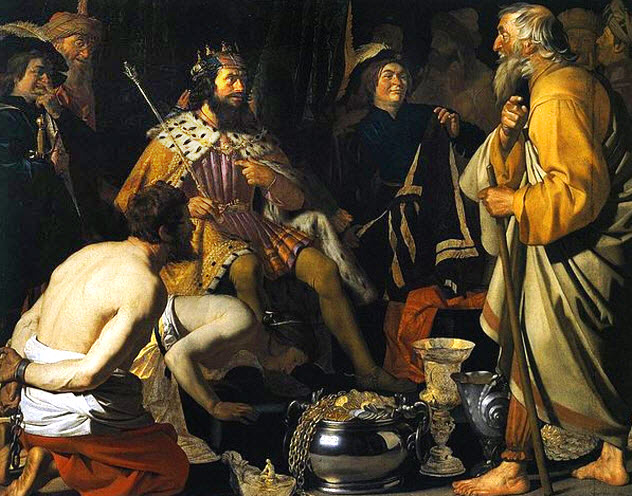
After the Athenians labored under the laws of Draco—and courted death for any offense imaginable—they turned to Solon for a rewrite of the laws in 594. What he established was the basis for democracy.
Although it is not in the same form that we are more familiar with today, his rules set a precedent. He got rid of the practice of selling citizens into slavery if they defaulted on loans and introduced the ideas of a trial before a jury and a ruling council.
That was a huge change from what the Athenians were accustomed to, and Plutarch writes that the idea for this type of government came from an oracle. When Solon was chosen to try to fix everything that was wrong with Athens, he appealed to the Oracle at Delphi for guidance. The priestess there told him, “Sit in the middle of the ship, guiding straight the helmsman’s task. Many of the Athenians will be your helpers.”
Solon went on to turn a government that had drawn officers from the nobility to one that was designed to protect every person and one with officers selected from among those with material success rather than a pedigree. He also included laws that stated if officers broke the oaths they took, they needed to pay recompense to the oracle. The Pythia herself was given an official post as an interpreter of religious rituals and sacred law, where she continued to help guide the development of democracy from within.
8 Philip Of Macedon’s Silver Spears
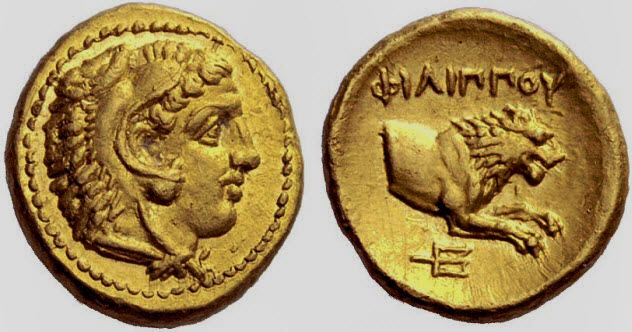
Precious metals like gold and silver have been highly valued for a long time, and it was not until the Greeks that precious metals were melted down into easy-to-carry coins that could be handed out as payment. Among the first to use coins was the Greek military, who needed a way to reimburse the massive armies they were calling to arms. These early coins were developed to be used anywhere, and it was Philip II of Macedonia—Alexander the Great’s father—who developed the idea of coins as we know them today.
When Philip rose to power, it was to the top of an ailing country. Macedonia was thought to be a barbaric neighbor to the more cultured Greece, and Philip’s first obstacle was proving that he and his people were worthy of being called Greek. In 359, Philip visited the Oracle at Delphi and was told that “with silver spears you may conquer the world.”
Many of the oracle’s prophecies needed some interpretation, and Philip read the words as not referring to military might but economic power. Turning his eye toward nearby silver mines, he made a push for conquering them and using the newly acquired silver to issue bribes and payments wherever it was necessary.
He then went on to create a series of coins that weren’t just valuable for their precious metal content but for the message they spread. Philip’s coins were struck with designs that were pure propaganda, with images not unlike the ones found on coins today.
One of the finest was a coin that had Zeus’s head on one side (a version of the god that bore a striking similarity to Philip himself) and a horse on the other. It was a clear reminder of Philip’s entrance into the Olympics and his bid to make Macedonia recognized as on par with Greece. The coins were circulated all over the empire and had their descendants in the imagery of modern money.
7 The Tiburtine Sibyl And The Apocalypse
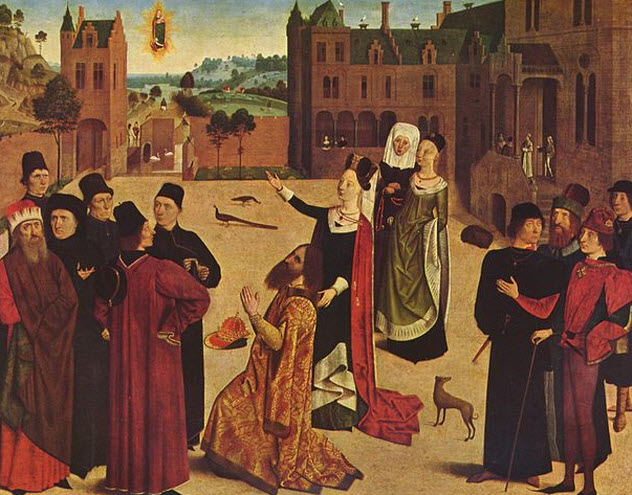
The Prophecy of the Tenth Sibyl is a manuscript that dates back to the 11th century. Nearly as popular as the Bible, it was so popular that dozens of copies still survive in languages including Greek, Latin, Arabic, Slavonic, and Ethiopic. Considered a late ancient apocryphal text originating from the fourth century, the work tells the story of a coming apocalypse and shaped belief in the End Times for medieval Christians.
The original text references the time of a Trojan emperor and tells the story of how the prophetic abilities of the sibyl reached the leaders of Rome. She was summoned to the city, and when she got there, 100 senators had the same dream on the same night.
Each one dreamed of nine different suns with nine different qualities, and when they appealed to the sibyl to find out what the dream meant, the interpretation was a dark one. The sibyl told them that the nine suns—and their different characteristics—represented mankind’s future generations and the changes they would undergo.
The first two generations were peaceful, the third would be a time of turmoil for Rome, the fourth would witness the birth of Christ, and the fifth would spread the gospel. War and upheaval would return for the sixth, seventh, and eighth. In the ninth, there would be a series of four kings. The fifth king would rule for 30 years, build a temple, and see God’s will done.
Then a last emperor, handsome and shining, would rise to rule for another 112 years, converting all the nonbelievers to the will of God. After him would be the Antichrist to challenge him, but he was destined to be defeated by this last emperor as he turns the proverbial keys to the kingdom over to God and Christ.
The prophecy is the first mention of a divine ruler appointed by God who is responsible for subduing the Antichrist. With this original appearance in the fourth century, it marks a shift not only in religious beliefs but in political beliefs as well. Emperors—and later medieval kings—were increasingly viewed as divine creatures who were, first and foremost, concerned with defeating the evils that walked the world and preparing their people for the Second Coming.
6 Tages Founds A Religion
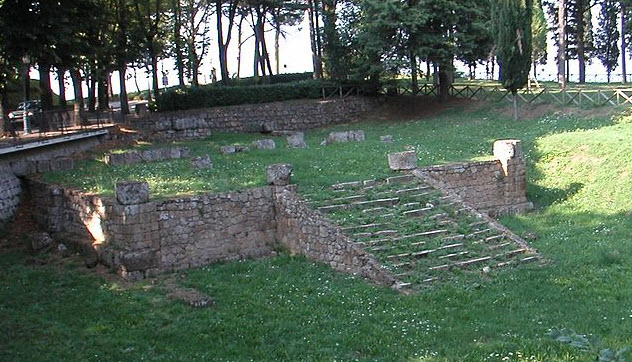
Pre-Roman Etruscan culture relied heavily on the art of divination, and their seers and soothsayers had written entire texts on how to interpret the signs that were sent from the gods. They saw omens in everything from lightning to the organs of sacrificed animals and believed the future was written in the world around them. All they needed to do was know how to read it, and they did. Their divination knowledge was well-known across Italy, and it was a Tuscan family that was even credited as birthing the sage that predicted Caesar’s troubles on the Ides of March.
By the time Christianity came stomping through the old ways, Etruscan diviners became the stuff of the dark side. Even though the old diviners and the new Christians didn’t get along, the practitioners of the old Etruscan religion managed to hold their power for a surprisingly long time—long enough to guide Rome on the path to becoming a major empire.
And it was all based on the prophecies of a man named Tages. The legends say that Tages was child-sized when he was birthed from a furrow being plowed in the fields and that when a crowd gathered to see this miracle, his first words were written down to ultimately become the first sacred book of the Etruscans.
Another part of the story of Tages suggests that he went on to teach haruspication (divination by reading animal entrails) to a group known as the Twelve People of the Etruscans. They were usually interpreted as a group of people from each of the city-states who met regularly to discuss matters of national importance, blending religious beliefs with political rule.
5 Lycurgus And The Establishment Of Sparta
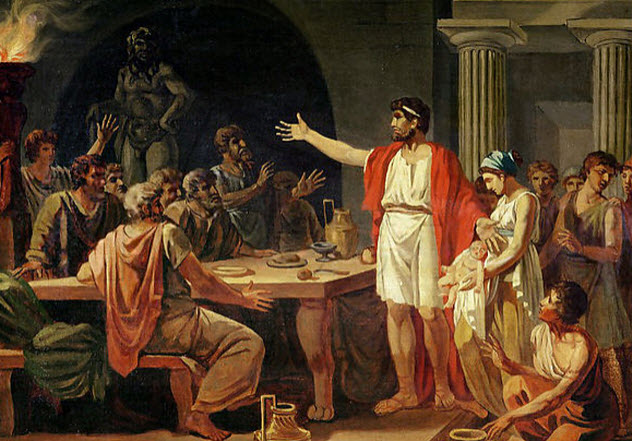
Lycurgus is one of those historical figures who has had the story of his life told so many times that no one is quite sure which parts are true. Historians are not even sure when he actually lived: Aristotle puts his life at around 884 BC, while Xenophon’s records suggest that he lived around 200 years earlier. Details aside, Lycurgus is associated with the development of Spartan culture as we think of it, and he did it with the guidance of the Oracle at Delphi.
According to Plutarch, Lycurgus first gained power as the regent of another. During his first visit to the oracle, she called him “beloved of the gods, and rather god than man” and promised him that he had the ability to establish a set of laws that would lead his people to prosperity.
He pitched his ideas to a small group of supporters first, but that small group quickly grew. During another visit to the oracle, Lycurgus received even more prophetic wisdom in the form of the Rhetra. The Rhetra defined how to divide the people into different groups, how to set up the Senate, and how to distribute power. With Lycurgus and his followers embracing this new method, motions put forward by senators and kings were approved or dismissed by the people.
The Spartan government went through a whole series of changes, not surprisingly, but it was Lycurgus—with guidance from the oracle—who established the heart of Spartan culture.
4 Grinus And The Founding Of Cyrene
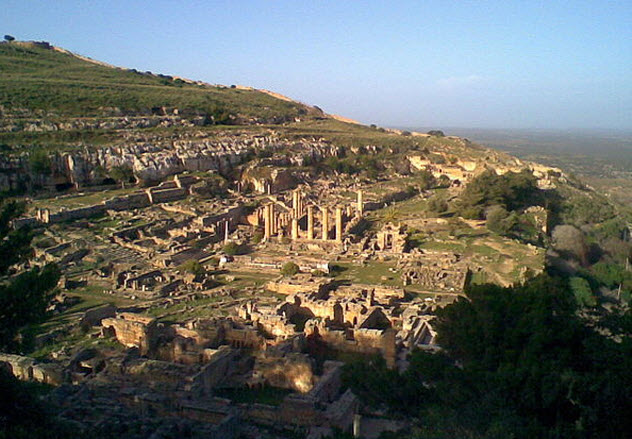
Cyrene was one of the most important cities in the Hellenic era and throughout Roman occupation. Established in 631 BC, it was a major hub of commercial trade, religion, and culture for more than 1,000 years. Even today, archaeologists are scrambling to save it.
And it was founded because of the bidding of the Oracle at Delphi.
When Herodotus wrote about the founding of the city, he told the story of Grinus, son of Aesanius and king of Thera. When the king consulted with the oracle, he was told that he needed to found a city in Libya. The king ignored the order, not out of any outright rebellion but simply because no one knew where Libya was.
Over the course of the next seven years, the rain stopped and hardship seized the people. When the king appealed to the oracle again to find out what he could do to save his people, he was reminded of the prophecy. Messengers were sent out to find someone who knew where Libya was, and finally, they found a dye merchant named Corobius.
He had been to Libya—quite by accident—and was able to escort a small party across the sea and to the new land. Leaving him there, the Therans returned to assemble a group of settlers from each of their nation’s districts and head out to found the city that they hoped would save their own.
They ended up settling on an island off the coast, but the bad luck still haunted Thera. The oracle was consulted and replied that they needed to found their city on the continent, not on an island. Moving to the mainland, the native peoples guided them to the final location that would become Cyrene and helped them settle around a spring that would be dedicated to Apollo.
3 The Sibylline Books
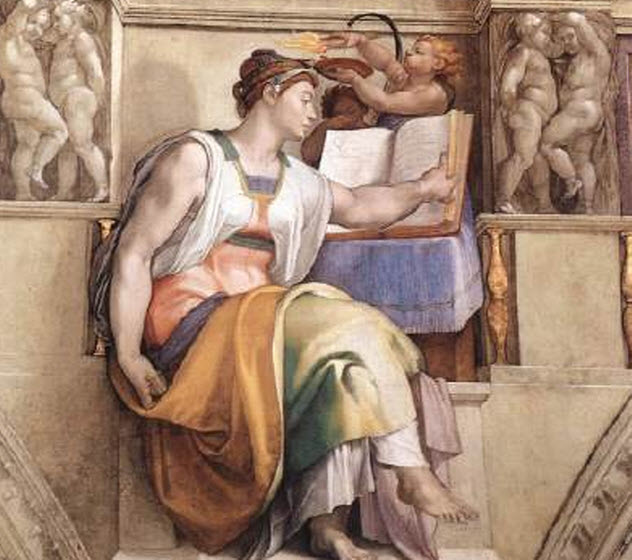
The Sibylline Books are a set of mysterious texts written somewhere around the sixth century BC by the ancient priestesses thought to have been blessed with the gift of prophecy. Since the books were kept under close guard by those who possessed them, we really have no clue what the books actually said. We do know that they were partially destroyed in 83 BC and then burned in their entirety around 400 by the order of a Roman general.
The story of how a sibyl burned some of the books rather than compromise on the price is a famous one, and after the sale was finished, the remaining books were kept in a stone chest beneath the temple of Jupiter Capitolinus.
They could only be read by order of the Senate, and it was only during a major crisis or times of great need that the chest was opened and the books were read by those assigned to keep them safe. Sharing any knowledge of what was seen in the books was a crime punishable by death, so we are not even sure if the books contained rules and rituals to appeal to the gods for help in setting things straight or actual predictions.
It’s suggested that many of the temples that dotted the ancient world were built after consultation with the books and that countless cults, rituals, and observations also have their roots in the books. Cicero and Livy both record some of the omens and portents that caused the Roman Senate to order the books unsealed, including astronomical phenomena like the appearance of the Sun at night and more earthly omens like lightning striking a temple or religious statue.
Livy records one specific occurrence where the books were consulted. After two cows climbed some stairs and entered a building, a rain of stones fell in several towns. At the same time, lightning hit a temple to Jupiter in Minturnae and several ships in Vulturnum were also struck and destroyed. After consulting the books, a period of fasting was observed and then repeated every five years.
With the rise of Christianity, consulting the books gradually fell out of fashion. But it is likely that they had already shaped a good portion of early Roman religion, holidays, observances, and rituals.
2 Flavius Josephus Predicts The Rise Of Vespasian
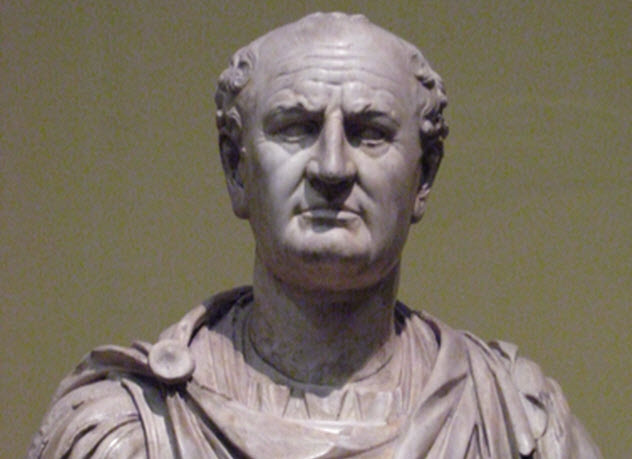
Josephus was a Jewish priest and historian who wrote extensively on early Jewish history, and he is credited with giving us an authoritative, accurate history of his religion during Roman rule. Born in 37, he first traveled to Rome from Jerusalem on a mission to free some of his countrymen from a Roman prison. When he returned to Jerusalem, it was to rebel against Rome, setting him right in the middle of a war that he survived because of a prophecy.
When Rome stormed into Galilee, Josephus and his companions holed up in the fortress of Jotapata. After spending 47 days there, Roman forces broke through and the rebels were driven back to a cave. Rather than surrender, the men decided to commit suicide—a major sin.
Josephus convinced them not to condemn themselves by suicide. Instead, he proposed that each man should kill the man at his side. They drew lots for the one who would survive at the end to surrender, and that was Josephus. Josephus—along with the man he was supposed to kill—surrendered to the Romans, and they were taken to the commander, Vespasian.
Facing crucifixion, Josephus told Vespasian of the prophecy of an oracle—a prophecy that he suggested referred to his captor. The prophecy was that “a star shall come out of Jacob, and a scepter shall rise out of Israel; it shall crush the forehead of Moab and break down all the sons of Sheth.” For the Jews, the prophecy was referring to the Messiah, but Vespasian was intrigued enough by the prospect that it was talking about him that he spared Josephus from death.
After Nero’s suicide in 68, Galba’s hanging in 69, and failed bids for power by two others, Vespasian was made emperor in what seemingly fulfilled the prophecy the Jewish prisoner had told him. Josephus was released, made a Roman citizen, given the name Titus Flavius Josephus, and installed as an adviser.
Even though he absolutely was not trusted by his former Jewish allies, he saw an end to the siege and the destruction of Jerusalem. He went on to write, leaving us with a glimpse into that particular pocket of history.
1 Onomacritus And His Forgeries
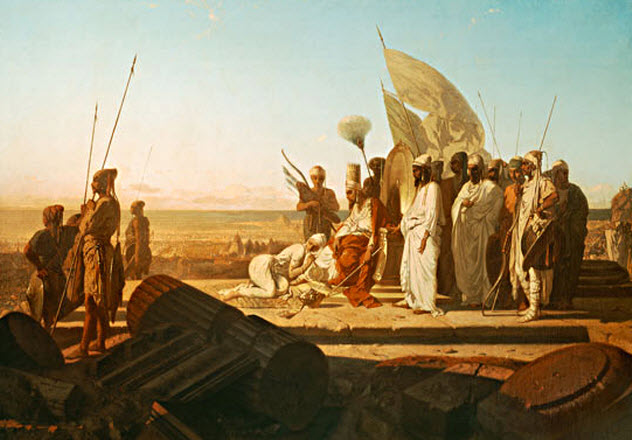
The ancient world was shaped by the wars led by men like Alexander the Great and Xerxes, ultimately allowing for everything from cultural exchanges to the development and trade of goods and knowledge. If it weren’t for the rather dubious prophecies assembled—and often written—by Onomacritus, the world might have looked considerably different.
Herodotus says that he was employed mainly in the collection, preservation, and presentation of ancient oracles. He was a scholar, a historian, and an interpreter who was banished from Greece when it was discovered that the information he was presenting from oracles and prophecies wasn’t authentic, per se, as much as they were slightly doctored by him. Once he was banished from Athens, he made his way into Persia where he appealed to Xerxes for employment in his court.
At the time, the counselors of Xerxes were trying their best to get him to renew aggressions against the Greeks, and Onomacritus saw his opportunity. Presenting himself as the keeper and collector of ancient Greek knowledge and prophecy, he gave Xerxes a series of oracles that clearly predicted a win for the Persians. What he conveniently left out were any predictions, prophecies, and texts that said otherwise. Ultimately, Xerxes was persuaded to head out to war.
In addition to starting a war based on selective telling of the truth, Onomacritus has also successfully presented us with a major literary problem even today. Orpheus is one of the great writers of ancient Greek ritual and wisdom, half mythical and mentioned alongside writers like Homer and Hesiod. While we know there are a number of works that are attributed to him, we do not know what he actually wrote. Onomacritus forged an unknown number of Orphic works and changed countless more before cementing those in history and brushing aside the real thing.





